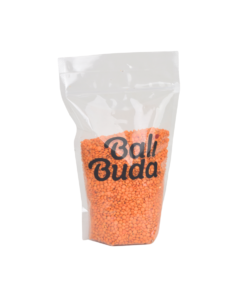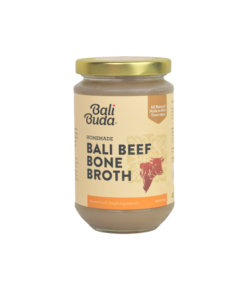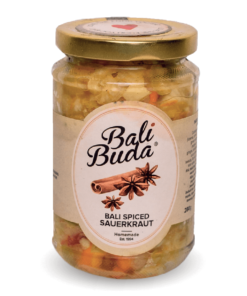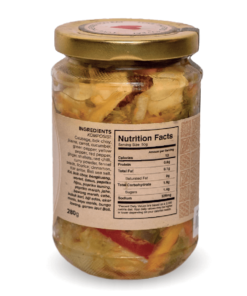Blog
Gut Health and the Second Brain: What Science Says and How to Support It Naturally
In recent years, gut health has become a hot topic in wellness and nutrition circles, and for good reason. Scientists and researchers are uncovering fascinating connections between the gut and the brain, calling the gut our “second brain.” This isn’t just catchy marketing, it’s rooted in real science.
At Bali Buda, we believe that nourishing your gut is one of the most powerful steps you can take to improve your overall well-being. In this blog, we’ll explore what the second brain is, why gut health is so essential, and how to support it using science-backed strategies and natural products available at Bali Buda.
1. What Is the Second Brain?
The term “second brain” refers to the enteric nervous system (ENS), a complex network of over 100 million neurons embedded in the lining of the gastrointestinal tract. This system operates independently of the central nervous system and is capable of processing signals, managing digestion, and even producing neurotransmitters like serotonin, which plays a crucial role in mood regulation.
According to a review published in Nature Reviews Gastroenterology & Hepatology, the ENS is not only responsible for coordinating digestion but also communicates directly with the brain through the gut-brain axis, a bi-directional communication system involving nerves (like the vagus nerve), hormones, and immune signaling.
This connection explains why gut issues often coincide with mental health symptoms like anxiety or depression, and why nurturing your gut may benefit both your digestive system and your mood.
2. Why Gut Health Matters
A healthy gut isn’t just about avoiding bloating or indigestion. It plays a role in nearly every aspect of health:
1. Immune Function
Roughly 70% of the body’s immune cells are located in the gut-associated lymphoid tissue (GALT). The gut acts as a front-line defense system against pathogens and helps train immune cells to differentiate between harmful invaders and harmless substances. An imbalanced gut can lead to chronic inflammation or an overreactive immune response, contributing to allergies, autoimmunity, and frequent infections.
2. Nutrient Absorption
The gut is where all digestion and absorption take place. If your gut lining is compromised or inflamed, your body may struggle to absorb vital nutrients like vitamins A, D, E, K, and minerals like iron and magnesium. Malabsorption can lead to nutrient deficiencies even with a healthy diet. A strong gut lining and balanced microbiome ensure that enzymes break down food efficiently and nutrients pass into the bloodstream.
3. Inflammation Control
Chronic inflammation is at the root of many modern diseases, including heart disease, diabetes, and arthritis. A healthy gut helps regulate systemic inflammation through the production of short-chain fatty acids (SCFAs) like butyrate, which maintain the integrity of the gut barrier and reduce inflammatory signaling in the body. Conversely, a disrupted microbiome can trigger leaky gut, allowing toxins to enter the bloodstream and ignite inflammation.
4. Mental Health
The gut-brain axis is a major player in mental wellness. The gut produces around 90% of the body’s serotonin and communicates with the brain via the vagus nerve. An unhealthy gut can contribute to mood disorders like anxiety and depression, while a diverse and balanced microbiome has been linked to better emotional regulation, stress resilience, and cognitive function.
5. Hormonal Balance
Your gut is essential for metabolizing and eliminating hormones, especially estrogen. A disrupted gut flora (known as estrobolome imbalance) can lead to hormone recycling, which increases the risk of estrogen dominance. This can contribute to issues like PMS, acne, and even hormone-sensitive cancers. The gut also influences hormone production indirectly by affecting blood sugar balance, stress hormones, and thyroid function.
When the gut is out of balance (a state called dysbiosis), it can lead to a range of issues including IBS, autoimmune conditions, skin problems, brain fog, fatigue, and even mood disorders.
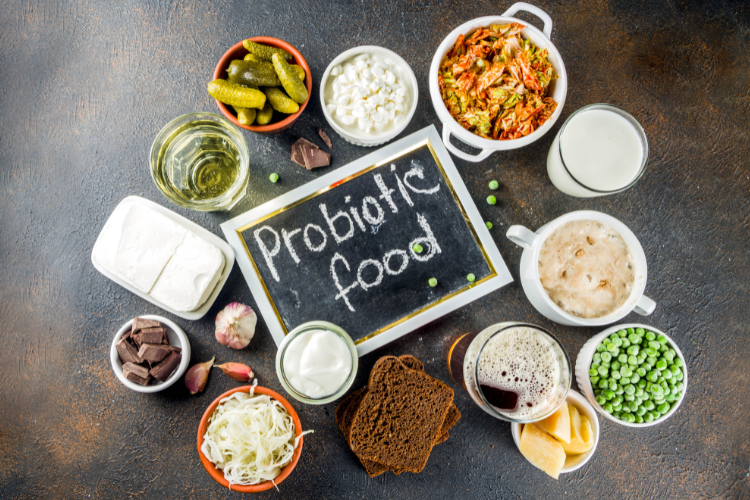
4. The Gut Microbiome: Your Internal Ecosystem
The gut microbiome is made up of trillions of microbes including bacteria, fungi, and viruses that live primarily in the colon. These microbes help us digest food, synthesize vitamins (like B12 and K), and protect against pathogens.
Research published in Cell and The American Journal of Clinical Nutrition confirms that the diversity and balance of these microbes are crucial for optimal health. The more diverse your gut microbiome, the more resilient it tends to be.
Several factors influence the microbiome, including:
- Diet (fiber intake, sugar, processed foods)
- Antibiotics and medications
- Stress and sleep
- Physical activity
5. Science-Backed Ways to Support Gut Health
1. Eat More Fiber
Dietary fiber is fuel for your gut bacteria. It helps produce short-chain fatty acids (SCFAs), which reduce inflammation and support colon health. Look for chia seeds, rolled oats, lentils and beans.
2. Include Fermented Foods
Fermented foods are rich in probiotics, which introduce beneficial bacteria to the gut. At Bali Buda, we have a great range of fermented foods, such as our Bali spiced Sauerkraut, Spicy Kraut-chi, and of course our Kombucha selection!
3. Limit Processed and Sugary Foods
High-sugar, low-fiber diets can feed harmful bacteria and promote dysbiosis. Opt for whole, real foods whenever possible.
4. Support Gut Lining Health
A healthy intestinal lining keeps toxins and undigested food out of the bloodstream (aka prevents leaky gut). Get our fantastic homemade bone broths! We have organic beef bone broth and even probiotic chicken broth too!
5. Feed Your Good Bacteria with Prebiotics
Prebiotics are non-digestible fibers that feed beneficial bacteria. Think green asparagus, garlic, onion…
6. Stay Hydrated
Water helps move food through the gut and supports mucosal lining integrity.
7. Manage Stress
Chronic stress can disrupt the gut-brain axis. Try some yoga and meditation classes or some adaptogens like Ashwagandha (by the way, you absolutely need to read our blog article here about adaptogens!)
8. Get Quality Sleep
Studies show that poor sleep alters gut bacteria. Aim for 7–9 hours a night and stick to a consistent sleep schedule.
9. Move Your Body
Exercise supports healthy microbial diversity. Even a daily walk makes a difference.
6. Signs Your Gut Might Need Support
- Persistent bloating, gas, or constipation
- Skin flare-ups (eczema, acne)
- Frequent illness
- Brain fog or fatigue
- Food sensitivities
- Mood swings or anxiety
If you’re experiencing these symptoms, your gut may need a little extra love.
Takeaway
Your gut is more than just a digestion machine, it’s a critical part of your immune, neurological, and hormonal systems. With more scientific research highlighting the power of the gut-brain connection, supporting your gut is one of the best investments you can make in your long-term health.
At Bali Buda, we’re passionate about offering food and natural products that nourish from the inside out. From fermented foods to prebiotic-rich pantry staples, we stock everything you need to give your second brain the support it deserves.

 Indonesia
Indonesia


